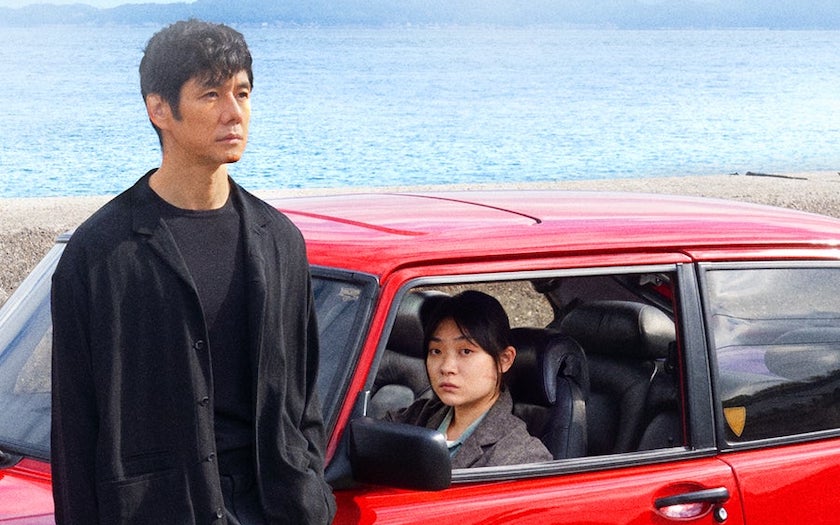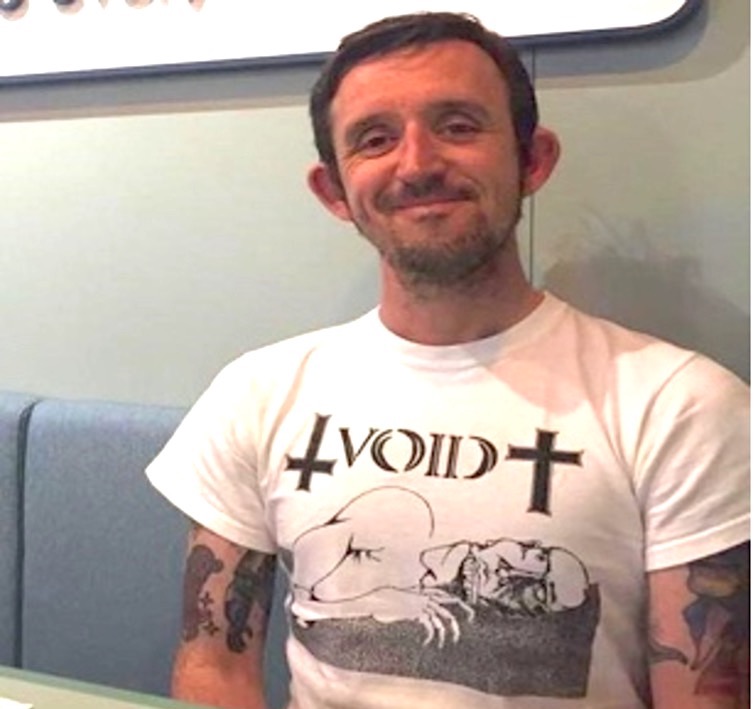
Ryûsuke Hamaguchi’s Drive My Car is a thoughtful and enigmatic character drama, based on a short story by celebrated author Haruki Murakami.
Yûsuke Kafukue (Hidetoshi Nishijima) is a successful theatre director, married to TV executive Oto (Reika Kirishima). They share a complex, creative relationship. One afternoon, Yûsuke returns home unexpectedly and discovers Oto having an affair with a young actor, Koji Takatsuki (Masaki Okada), but he does not say a word.
Yûsuke loves to drive his car, a red Saab, and run lines on his way to work, playing against scenes that Oto has recorded for him on cassette. It is during one of these rehearsals when Yûsuke is involved in a small accident. Although unharmed, at the hospital Yûsuke learns he has glaucoma and will lose his sight in one eye. Not long thereafter, a tragic event disrupts their life forever.
Two years later, Yûsuke accepts a residency at a theatre in Hiroshima to stage a production of Uncle Vanya. The theatre assigns him a driver, Misaki (Tôko Miura), and although initially reluctant, he agrees. The two quickly find that a bond has been forged. Yûsuke’s plays are highly regarded and known for being multilingual productions. The unconventional approach sees actors speak different languages – Japanese, Mandarin, Korean, English, and Korean sign language – while a screen projects subtitles above them. Although expected to perform himself, Yûsuke unexpectedly casts Koji in the title role.
At nearly three hours long, Drive My Car is a slow-paced, yet gripping drama, concerned more with who these people are than the events that happen to them. It is similar to Chang-dong Lee’s Burning (Beoning) in some regard, in that it extrapolates a Murakami short story to marathon length, giving focus to character so relationships feel genuine and never contrived.
Drive My Car is in no hurry to make its point – the title sequence, for example, does not begin until 40 minutes into the movie – but it is engrossing to watch Yûsuke and Misaki slowly become friends and find things in common – even if part of that connection is loss and a shared sense of regret. We might be tempted to think of their relationship as somehow paternal. The movie is not subtle when pointing out that Misaki is the same age as Yûsuke’s daughter would have been had she survived pneumonia. But Yûsuke doesn’t really behave in a parental manner. Their dynamic is one of growing respect and friendship, with each learning from the other, not one of familial substitute.
Although it’s not necessary to be familiar with Anton Chekhov’s Uncle Vanya to enjoy Drive My Car, those familiar with the Russian play may be able to draw richer comparisons and recognise common themes. Nevertheless, Yûsuke’s multilingual theatre productions make for fascinating viewing. His only direction, early on, is for his actors to read the text, familiarising themselves with it to such an intense degree they are able to interact on stage without knowing the other’s language. It bleeds into Yûsuke’s real life too, as he and Miaski are invited for dinner at his assistant’s house. Although they are translated, the dinner conversations mirror the rehearsal dynamics, with three different languages around the table.
Drive My Car is one of those intriguing dramas that takes a slow, and at times, almost vague direction. Its languidly captivating storytelling is hard to convey in either this review or the film’s trailer. But by the end, you realise this slow approach, welded together with excellent lead performances from Nishijima and Miura, is absolutely worthwhile and that Drive My Car has enthralled you the entire time.











